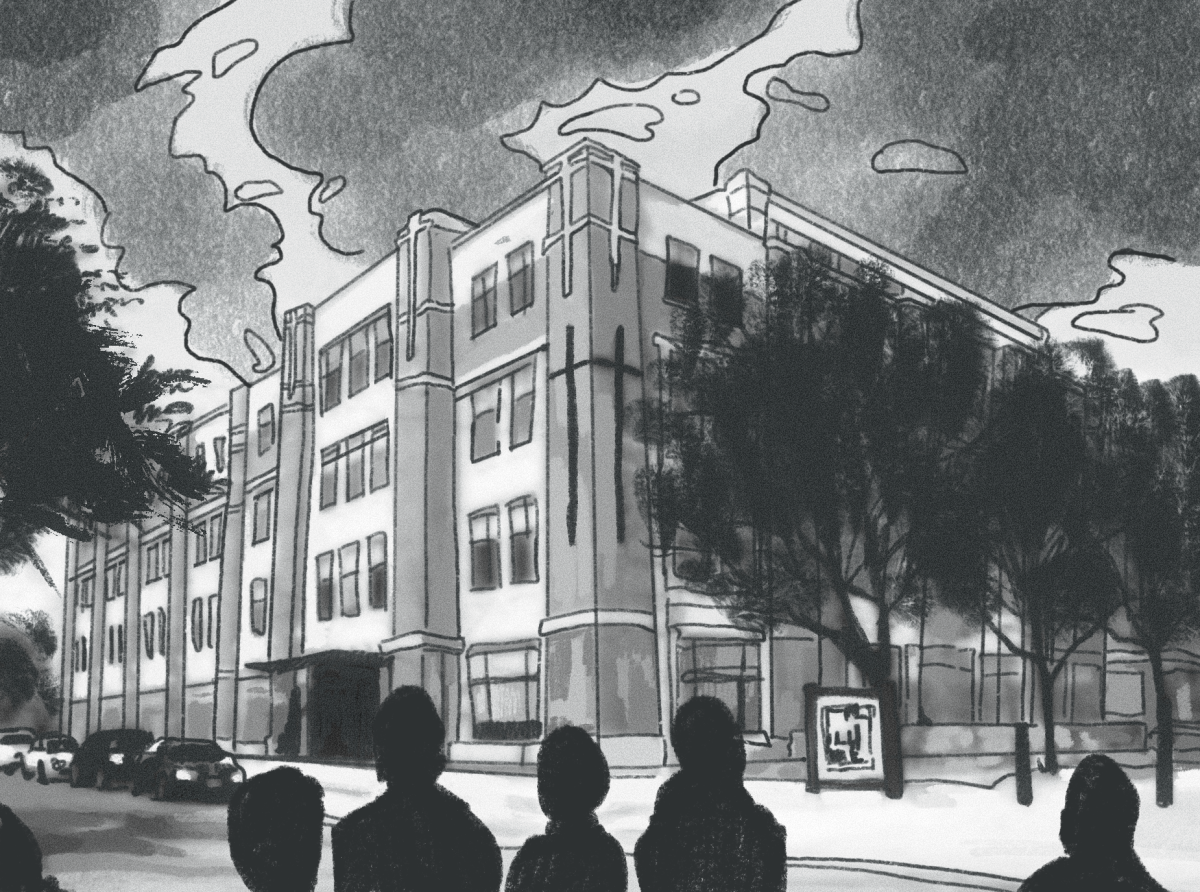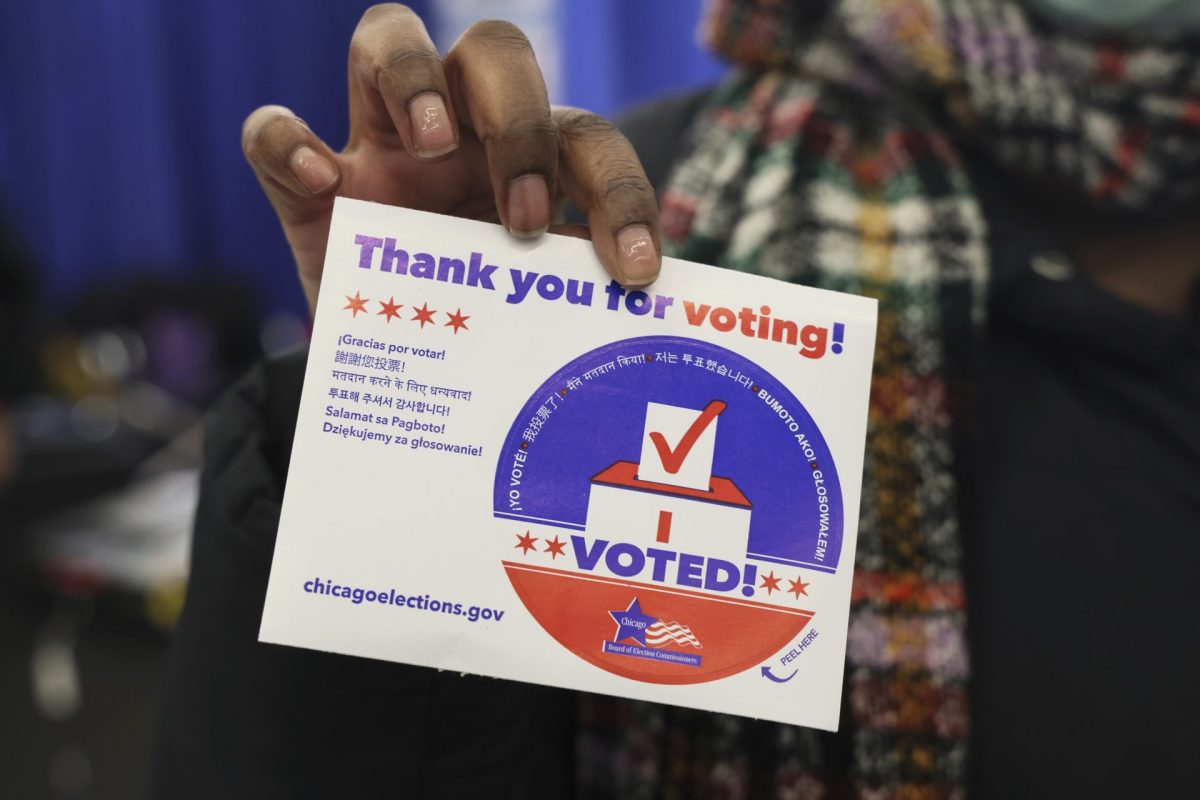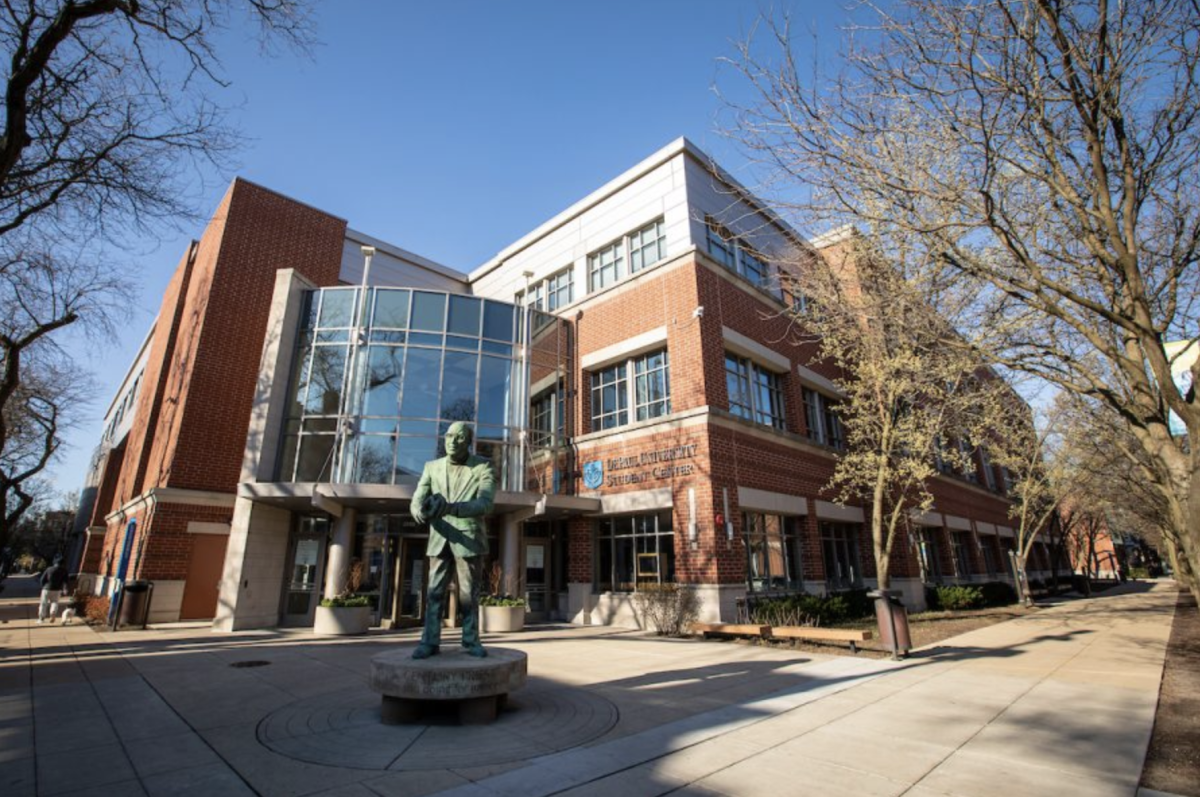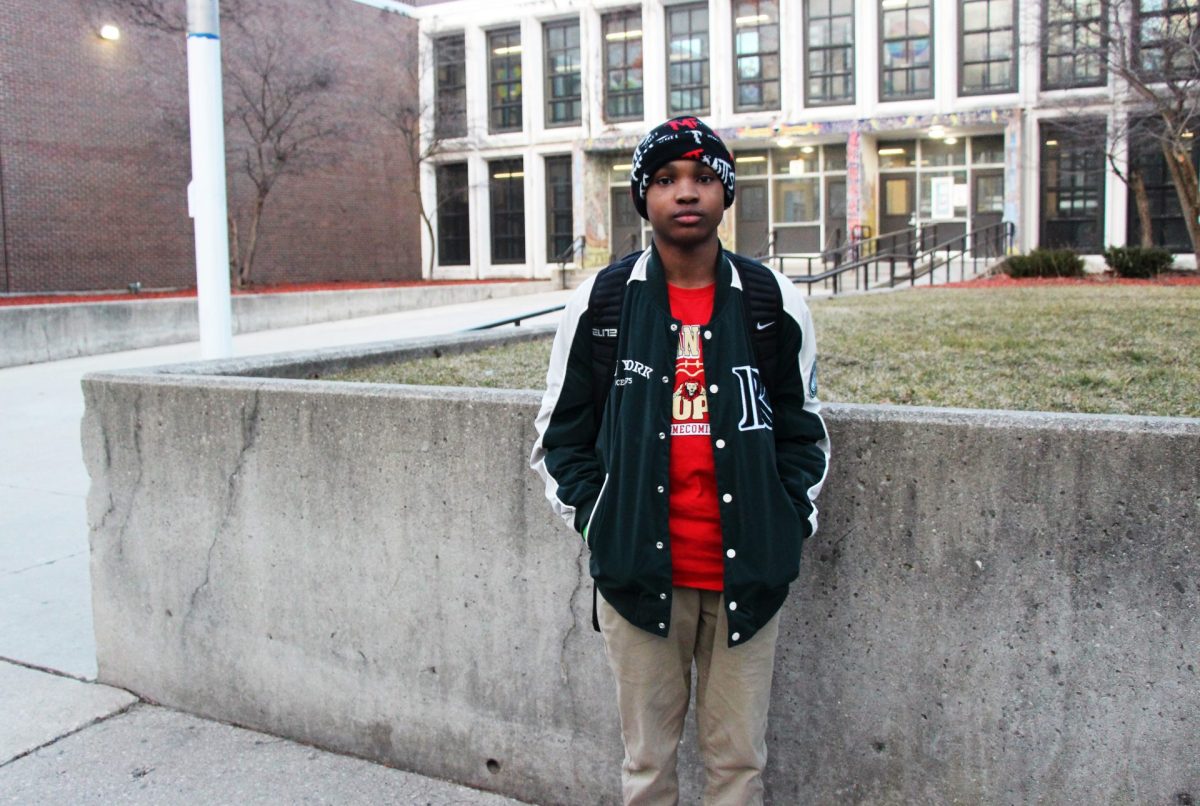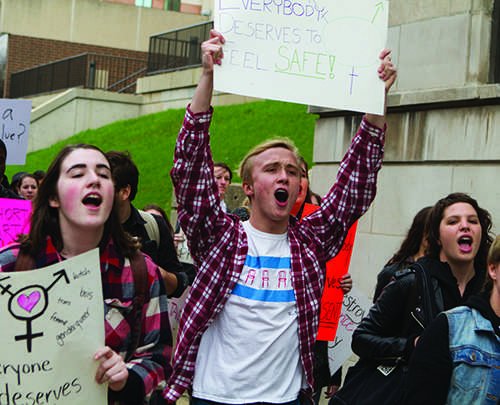
As Sexual Assault Awareness month comes to an end, the discussion about sexual assault on DePaul’s campus is just beginning.
After Wednesday’s banner drop in Arts and Letters Hall and Thursday’s Take Back the Night rally, many students are asking for more answers about the university’s policies on handling sexual assaults.
SGA hosted a panel Thursday night addressing many of these concerns, and though it was planned prior to the banners being raised the day before, it brought more than 100 students out to question DePaul’s policies.
Bob Wachowski, Public Safety director; Rima Shah, sexual health and violence prevention coordinator; and Ellen Herion Fingado, assistant dean of students, spoke on the panel, scarcely answering many of the students’ questions.
Even though the panel was extended 15 minutes, it ended abruptly when someone from the audience asked a question about about the athletic department, which was called out on one of the banners that read “DPU Athletics, we know what you did #RapeCulture #YouCantHide.”
“I kept quiet about it for a few months… until I saw the banners in Arts and Letters,” one student, who asked to remain anonymous, said. The student was called to testify to the dean of students regarding a sexual assault incident involving a student athlete in January.
The student received an email Jan. 16 from Art Munin, dean of students, asking them to “discuss a situation that occurred on campus a few days ago,” according to the email obtained by The DePaulia.
“I was the first person to see the survivor coming back from the incident and so I saw that she was not in a coherent state and something was very wrong,” they said. “So I took her to the hospital with a couple other people who were her friends.”
The incident occurred Jan. 11 in Centennial Hall, according to the student and a Public Safety report. The student said they gave their testimony to the dean of students Jan. 20, since the university wished to move quickly because “there was security video evidence.”
“I believe (the student judicial hearing) was closed between just both parties, their chosen faculty members, and the student judicial board that was assigned,” they said.
A student judicial hearing board has one staff member, one faculty member who has been vetted through the faculty council process and one student, an SGA representative, according to Fingado.
When a survivor pursues a judicial hearing at the university, the trial and Public Safety report are essentially private and protected by the educational privacy law, FERPA. There is no standard set of disciplinary actions outlined by the Dean of Students office regarding sexual assault cases.
“Whenever cases of sexual assault or rape do come to our office, suspension and dismissal is typically on the table,” Fingado said. “I can’t speak to specific cases, but yes, cases of rape and sexual assault that go through the student judicial process we do consider suspension and dismissal.”
“Any student who violates any state, federal or municipal law shall be subject to judicial action for said offense(s) up to and including suspension and expulsion,” according to DePaul’s student code of conduct. “The adjudication of such violations may proceed regardless and/or independently of any action taken by state, federal or municipal agencies.”
Another problem students have with the university’s sexual assault policies is its policy of reporting sexual assaults to the Chicago Police Department (CPD).
“When someone gets in trouble for drinking too much you immediately call an ambulance,” one student asked during the panel Thursday. “Why are you guys so proactive about that but then if somebody says something about one of their friends being sexually assaulted, if their friend doesn’t want to come forward why don’t you feel the need to call the police?”
Survivors have multiple options when reporting a sexual assault: reporting the incident to DePaul Public Safety, the CPD or both. Filing a report through Public Safety allows the survivor to proceed with a judicial hearing at the university if desired, and a police report allows the survivor to pursue civil or criminal charges. Wachowski said Public Safety offers survivors the option to file a report with the police when called. However, survivors are not required to file a report through public safety and may go through the CPD first.
“You have to give the survivor the choice on what they want to do,” Wachowski said.
According to the Rape, Abuse and Incest National Network, 60 percent of sexual assaults that are committed in the U.S. aren’t reported to authorities.
If the survivor appears in need of immediate medical attention, Public Safety will call the CPD and often a paramedic. However, if there is evidence of a domestic battery, Public Safety is required by state law to contact Chicago Police who will investigate and possibly make arrests, Wachowski said.
“One thing we will not do is force the survivor,” Wachowski said.
But according to some students, Public Safety doesn’t give survivors much of a choice at all, but discourages them from filing with the police.
“The department has failed to prove their ability to deal with the sensitivity of the issue time and time again,” a release from DePaul Exposed, the group responsible for the banner drop, said. “Even encouraging those affected by sexual assault not to file a police report.”
The DePaulia spoke with a second student who asked to remain anonymous, who helped a friend file a Public Safety report after she was sexually assaulted fall quarter by the same student athlete.
“We had gone to Public Safety and we talked to them and filed a report and they said they would take care of it,” they said. “After time progressed, we never heard back from them.”
They said the survivor chose not to file a police report because “Public Safety said they would handle the issue.”
The source said Public Safety focused its questions more toward the survivor and her behavior rather than the accused, asking questions like, “were you drinking that night?”
“For me it’s like, what does it matter if she was drinking or not,” the source said.
The survivor in this instance did not go through the student judiciary process. She plans on transferring to another school in the fall.
“With all of these issues happening on campus, it’s becoming more clear that it’s just more money for (DePaul),” they said. “It doesn’t matter what I say or how I feel. As long as I pay my tuition, everything will be OK.”
Summer Concepcion contributed to this report.







